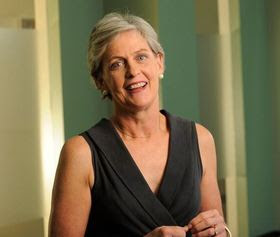Former First Lady Jeannie Ritter Believes Training and Early Intervention Are Essential Supports for Children’s Mental Health (Part 2)
Jeannie Ritter: ‘Early Intervention Key To Children’s Mental Health’
 Colorado’s former First Lady Jeannie Ritter says more children are being expelled from preschool settings than high schools in the state. This comes as advocates report seeing more significant behaviors in younger children. In the second of a two-part interview, Jeannie Ritter tells AD Policy Outreach Specialist Catherine Strode that training and early intervention may hold the key to turning around this trend.
Colorado’s former First Lady Jeannie Ritter says more children are being expelled from preschool settings than high schools in the state. This comes as advocates report seeing more significant behaviors in younger children. In the second of a two-part interview, Jeannie Ritter tells AD Policy Outreach Specialist Catherine Strode that training and early intervention may hold the key to turning around this trend.
How can we decrease the number of preschool expulsions in Colorado?
“I took a call just this morning from a public school teacher exactly on this topic. This is really a crisis. We don’t have the training we need to support these young kids and these families in our classroom. We want to do parental education and make sure parents have some good strategies in place when challenging behaviors come along. The preschool doesn’t have the tools to deal with challenging behavior and so these young kids are expelled. That, in itself, starts this spiral. Young moms need this kind of support so they can go to work. They might choose places that don’t provide the expertise they need around some of these challenging behaviors that are exhibited by their young kids. We have a missed opportunity for parents to be engaged in learning tools to deal with that. Help us get the message out to a broader community, to: educators, other service providers, policy makers. We want to pull some focus into these earlier interventions because the return, the chance of better outcomes, is much more enhanced if we can intervene earlier in the lives of people.”
Why are we seeing significant behaviors in younger children?
“We know that moms are entering the work force earlier. Before, maybe there was caregiver at home. We have a lot of movement in our nation and you find families out here, and their relatives live in Chicago. The natural supports aren’t there. There are challenges around keeping a household running in a healthy way when we have existing behavioral health issues or challenges around finances. We’re constantly trying to look at maternity leave. This is not just a luxury. This is actually part of the continuum which enhances or stacks the odds for healthy beginnings for moms and infants. Then we have all the other supports: that kids have access to the right foods, access to emotional supports in their communities. That all contributes to healthier outcomes, to kids that are ready to learn, feel safe in a learning environment and aren’t having to be hypervigilant because of what might be going on in the community. We don’t just take on one system. The win is when we coordinate those systems.”
What kinds of interventions are needed?
“One of the big challenges is advocating for infant mental health. People have a hard time understanding how infants and frankly, in utero fetuses, are impacted by toxic stress, violence, and anxiety that young moms have. When I’m talking about infant mental health and working with young moms, we can take an opportunity to give parents tools for creating a predictable environment that children know is safe and enhances a child’s well-being. The sooner we can begin to work with maternal mental health and postpartum (mental health), that’s when we get our best outcomes. That’s the best investment we can be making: supporting young families in what they need to feel better about what they do as a family. Maybe even these parents might not feel safe in their environment. Are we talking about food and security? Are we talking about not having access to being outside where we know that walking, feeling connected to a neighborhood, might not be a possibility if the neighborhood is not safe? How do we begin to engage people at that level and get all the systems in play that can impact those things?
What is the future ‘face’ of behavioral health?
“Technology is going to have a real impact: telehealth. I don’t mean just for rural communities. I mean for people who are isolated, homebound, or it’s just too much for them to get across town. Can we enhance telehealth in a way that people get services on their handheld? MHCD is working on these telehealth strategies. Now you can do this on your own monitor at home. The screen can be split into three compartments: a family member, your psychiatrist or primary care provider, and everybody’s talking. This concept of integrated care, that is where there’s real hope.Your primary care doctor makes sure there’s a behaviorist on site. We’re in over 60 sites across the city in primary care settings. We can make sure folks get access if they’re not coming through our traditional doors. That’s the new face of mental health.”
Second of A Two-Part Interview
Missed the First Part? Click here for Jeannie Ritter’s Discussion of the Importance of Early Childhood Intervention
 Catherine Strode is Advocacy Denver’s Communications and Policy Specialist. She holds a Masters degree in Public Administration with an emphasis in Health Care Policy. Catherine publishes Policy Perspective, featuring interviews with state policy makers on issues that affect the work and mission of Advocacy Denver.
Catherine Strode is Advocacy Denver’s Communications and Policy Specialist. She holds a Masters degree in Public Administration with an emphasis in Health Care Policy. Catherine publishes Policy Perspective, featuring interviews with state policy makers on issues that affect the work and mission of Advocacy Denver.
